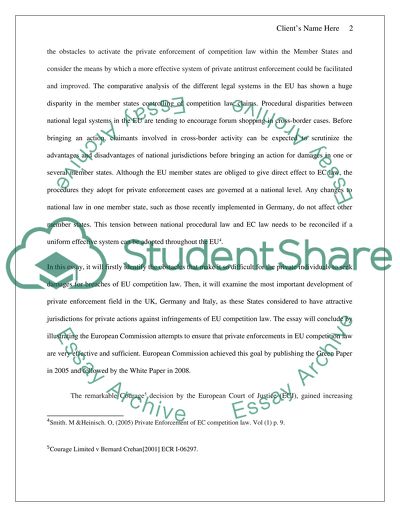Cite this document
(“He ability of private individuals to seek damages for breaches in the Essay”, n.d.)
Retrieved from https://studentshare.org/law/1394426-he-ability-of-private-individuals-to-seek-damages-for-breaches-in-the-eu-competition-law
Retrieved from https://studentshare.org/law/1394426-he-ability-of-private-individuals-to-seek-damages-for-breaches-in-the-eu-competition-law
(He Ability of Private Individuals to Seek Damages for Breaches in the Essay)
https://studentshare.org/law/1394426-he-ability-of-private-individuals-to-seek-damages-for-breaches-in-the-eu-competition-law.
https://studentshare.org/law/1394426-he-ability-of-private-individuals-to-seek-damages-for-breaches-in-the-eu-competition-law.
“He Ability of Private Individuals to Seek Damages for Breaches in the Essay”, n.d. https://studentshare.org/law/1394426-he-ability-of-private-individuals-to-seek-damages-for-breaches-in-the-eu-competition-law.


